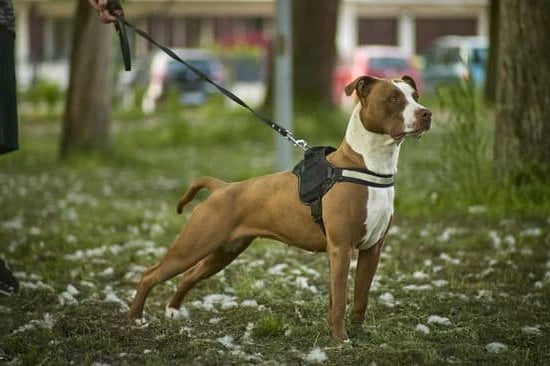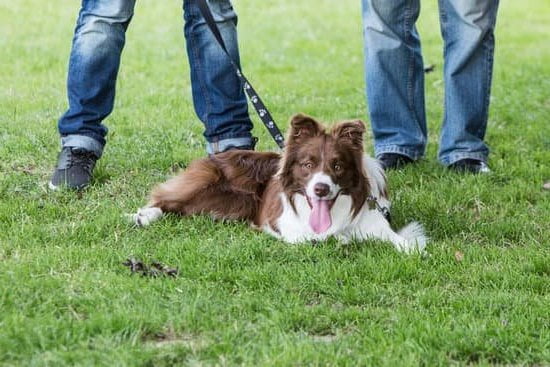Crate training is an excellent way to potty train a dog. When you first get a new dog, put him in his crate for short periods of time (15-30 minutes) until he becomes comfortable with it. Then gradually increase the time he spends in the crate.
Dogs don’t like to soil their sleeping area, so they will usually try to hold it until they can go outside. If you take your dog out regularly (every hour or so), he should be able to learn to “hold it” until he can go outside.
If your dog has an accident in his crate, don’t get mad at him. Just clean it up and put him back in the crate. He will learn from his mistakes.
How To Crate Train Dog With Separation Anxiety
Separation anxiety is one of the most common behavioral problems in dogs. Dogs with separation anxiety exhibit a wide range of behaviors, including whining, barking, chewing, digging, and even urinating or defecating in the house.
One of the best ways to help a dog with separation anxiety is to crate train him. Crate training can help a dog feel secure and safe when left alone. It can also help to reduce the number of destructive behaviors that a dog may engage in when left alone.
The key to successful crate training is to make the crate feel like a safe and comfortable place for the dog. You can do this by putting a soft blanket or towel in the crate, and by giving the dog a few toys to play with.
You should also begin crate training the dog gradually. Start by putting the dog in the crate for a short period of time (5-10 minutes), and gradually increase the length of time that the dog spends in the crate.
If the dog begins to whine or bark when left in the crate, don’t give in and let him out. This will only reinforce the behavior. Instead, wait until the dog stops whining or barking and then let him out of the crate.
If you are consistent with crate training, your dog will eventually learn to feel comfortable and safe in the crate, and will no longer exhibit signs of separation anxiety when left alone.
How To House Train A Dog Without A Crate
One of the biggest concerns people have when considering adopting or purchasing a dog is whether or not they will be potty trained. While crate training is a popular method for house training dogs, it’s not the only option. There are a number of ways to successfully house train a dog without using a crate.
The first step is to identify the cues your dog uses to signal that he needs to go to the bathroom. Common cues include sniffing around, circling, and going to the door. Once you have identified your dog’s cues, you can start to train him to go to the bathroom outside.
Begin by taking your dog outside every time he gives you a cue that he needs to go to the bathroom. When he goes to the bathroom outside, praise him and give him a treat. If he doesn’t go to the bathroom outside, bring him back inside and put him in a designated bathroom area (a small, confined space like a bathroom or laundry room). If he goes to the bathroom in the designated area, praise him and give him a treat.
Be patient and consistent when training your dog. It may take a while for him to learn to go to the bathroom outside, but with patience and persistence, he will eventually get the hang of it.
Crate Training Older Dog Barking
The first step in training an older dog to not bark incessantly is to determine the underlying reason for the behavior. Once the cause is identified, it can be addressed and corrected.
There are many reasons why an older dog might bark excessively. It could be a sign of anxiety, boredom, loneliness, or even pain. If the dog is barking out of excitement or frustration, it might be due to a lack of exercise or training.
If the dog is barking for attention, the easiest solution is to simply ignore the behavior. When the dog stops barking, provide positive reinforcement, such as treats or petting.
If the dog is barking out of anxiety or boredom, you might need to provide more exercise and stimulation. You can also try training the dog basic commands or tricks to keep them occupied.
If the dog is barking out of pain, you will need to take them to the veterinarian for a diagnosis and treatment.
With a little patience and effort, you can usually correct excessive barking in older dogs.
How Do You Crate Train A Dog At Night
?
Crate training a dog at night is a great way to get them to sleep through the night without having to worry about them getting up and roaming around the house. It can also be a great way to potty train your dog.
The first step is to get your dog used to the crate. Start by putting the crate in a room where your dog spends a lot of time, like the family room. Put some of your dog’s favorite toys and treats in the crate and let them explore. Once your dog is comfortable going in and out of the crate, you can start using it to potty train your dog.
To crate train your dog at night, put them in the crate about an hour before you go to bed. If your dog hasn’t gone potty, take them outside to go. Once they go potty, praise them and give them a treat. If your dog does go potty in the crate, don’t scold them. Just clean it up and try to be more consistent with taking them outside to go.

Welcome to the blog! I am a professional dog trainer and have been working with dogs for many years. In this blog, I will be discussing various topics related to dog training, including tips, tricks, and advice. I hope you find this information helpful and informative. Thanks for reading!





